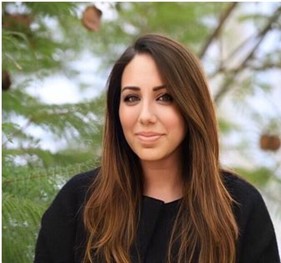Dr. Sanaa Alsarghali is the first female obtaining a PhD in Constitutional Law in Palestine. She is the 9th member of the Palestinian drafting committee appointed by the Palestinian National Council in 2019. In July 2020 UNESCO approved the appointment of Dr. Alsarghali as the new holder of UNESCO Chair on Human Rights, Democracy and Peace hosted by An-Najah National University. In 2019 she co-founded the Constitutional Studies Center where she is the director.
Sanaa received her PhD from Lancaster University, an LLM in law from Durham University-UK, and a BA in Law from An-Najah National University, Palestine. Alsarghali’s work and publications focus on the Semi-Presidential System’s application in Palestine, and constitution making process. She is a fellow at SEPAD and Richardson Institute for political studies in the UK. Her research with SEPAD is focused on sectarianism issues and constitutional identity in the Middle East.
In 2018 Dr. Alsarghali was elected as the Chairwoman of ‘Women, Media and Development’ (TAM), an NGO that intends to change the stereotypical image of the Palestinian women in the Media. Previously, she worked with TAM as a TV presenter through Al Fajer TV local station. Her social and political talk show 'TAM Time' was screened on the Palestinian National TV for two years.
In December 2018 Sanaa received the Outstanding Alumni Award from Lancaster University. The Alumni Award recognizes Lancaster graduates who have made a substantial contribution in their field and have developed an outstanding national or international reputation amongst their peers. Dr. Alsarghali has been awarded with many prestigious research fellowships and among them is The Kathleen Fitzpatrick Visiting Fellow in Constitutional Law at Melbourne University in 2019.
Her book: (States of Exception or Exceptional States Law, Politics and Giorgio Agamben in the Middle East) was published by Bloomsbury London in August 2022, where she is a lead editor and academic contributor in a chapter titled: “A Forced Marriage? Palestine and the State of Exception”.



 Hamilton Lugar School of Global and International Studies
Hamilton Lugar School of Global and International Studies